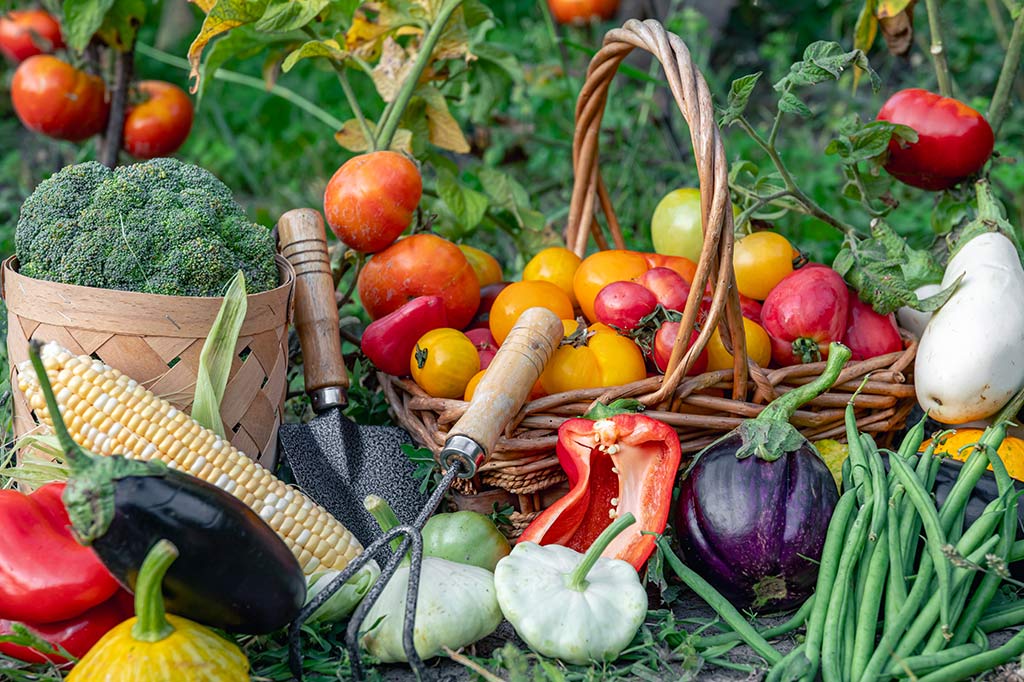
In our fast-paced world, grabbing a quick bite on the go has become the norm. However, of late we are seeing the concept of mindful eating gaining increasing importance. Mindful eating involves paying attention to the present moment. It means enjoying each bite of food. Not just that, it extends to developing a deeper connection with the food we consume. A conscious diet goes hand in hand with mindful eating. It prioritises choices that promote health and well-being. Let’s explore the essentials of mindful eating in this blog. Let’s also look at the major role that organic food plays in enabling a conscious diet.
What is Mindful Eating?
Mindful eating is a practice that encourages you to be fully present during meals. It makes you pay attention to the flavors, textures, and sensations of each bite. It involves listening to hunger and fullness cues and making intentional food choices. Rather than just eating, it involves appreciating the nourishment our meals provide.
A conscious diet extends beyond the act of eating. It involves making thoughtful decisions about the foods we consume. So, we need to consider the impact on our health, the environment, and the overall well-being of the community. It emphasizes balance, variety, and moderation in food choices, and saying no to extremes and fad diets.
What are the most common diet mistakes?
Modern lives are so busy and we are so often pressed for time. Convenience often becomes our choice. So, it’s easy to fall prey to common diet mistakes. Some of the most common diet mistakes include:
- Skipping meals
- Relying on processed and convenience foods
- Mindless snacking
- Consuming food with artificial colours & artificial flavours
Overconsumption of sugary beverages and depending on restrictive diets often do more harm than good.
How can we make our diet conscious?
To cultivate a conscious diet, it’s crucial to start by listening to our bodies. Understanding hunger and fullness cues helps prevent overeating. This in turn allows us to develop a healthier relationship with food. We need to choose nutrient-dense, whole foods. It is important to include a variety of fruits, vegetables, lean proteins, and whole grains to have a balanced diet. Mindful meal planning allows us to get the right nutrients in our body. It also avoids wastage. We need to avoid excessive processed foods and stay hydrated. These are all simple yet effective steps towards a more conscious and mindful approach to eating.
How does consuming organic food empower you for a mindful diet?
One of the best ways to get started on a mindful diet is to choose organic food. By this we mean organic fruits, vegetables and greens, organic kitchen essentials as well as products made with organic ingredients. Choosing organic food is a great way to get started on a conscious diet. Organic farming practices prioritize sustainability. Practices such as rain water harvested, cover cropping and using natural fertilizers and natural pesticides benefit the environment. Such practices also support the well-being of both consumers and farmers. By opting for organic produce, you support a system that avoids synthetic pesticides, herbicides, and genetically modified organisms (GMOs). This not only benefits your health but also contributes to a healthier planet.
What are the differences between organic food and conventional food products?
Organic food products stand out from conventional counterparts in several ways. Firstly, organic farming says no to using synthetic pesticides and herbicides. It instead relies on natural alternatives to promote crop health. This reduces the risk of pesticide residues in our food, supporting a cleaner and healthier diet.
Furthermore, organic farming practices prioritize soil health. This is done through practices such as crop rotation, cover cropping, and composting. This results in nutrient-dense produce that helps in creating a more balanced and nourishing diet. Animals raised organically are treated with care and are given access to outdoor spaces. They are not injected with antibiotics or growth hormones. This leads to higher quality of dairy products that are safer for us as well. Organic food benefits are immense.
In contrast, conventional farming often involves the use of synthetic chemicals and genetically modified organisms. These may have unknown long-term effects on human health. The overuse of pesticides and fertilizers can be bad for the environment. They can affect both soil quality and water systems.
Tips to keep in mind
Eat Without Distractions:
- Turn off the TV and put away your phone during meals, for example.
- Focus on the flavors, textures, and smells of your food.
Listen to Your Body:
- Pay attention to hunger and fullness cues.
- Eat when you’re hungry, stop when you’re satisfied.
Chew Slowly and Enjoy Each Bite:
- Take your time to chew your food thoroughly.
- Savour the taste and appreciate the act of eating.
Be Mindful of Portion Sizes:
- Use smaller plates to help control portions.
- Pay attention to serving sizes to avoid overeating.
Choose Nutrient-Dense Foods:
- Opt for whole, unprocessed foods. Opt for organic food products and natural organic products.
- Include a variety of fruits, vegetables, lean proteins, and whole grains in your meals.
Choose Organic for a Cleaner Plate and Planet:
- Opt for organic fruits, vegetables, and other produce when possible. The benefits of organic food are so many.
- Support farming practices that avoid synthetic pesticides and promote environmental sustainability.
- Enjoy the benefits of nutrient-dense, clean, and responsibly produced foods for your health and the well-being of the planet.
So mindful eating is a practice that brings awareness and intentionality to our meals. It thus creates a deeper connection with the food we consume. A conscious diet is a balanced one and one with better choices, for instance. So, it plays a major role in promoting overall health and well-being. Opting for organic food not only allows you to make mindful choices for your health, but for the environment as well.